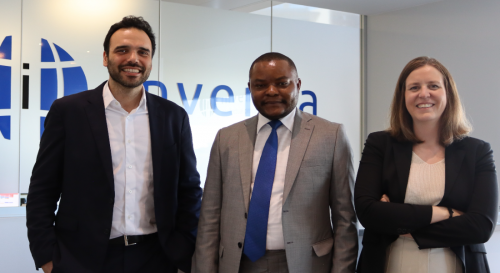
ARIPO and the regional patent examination training programme: what to expect
On September 2021, the African Regional Intellectual Property Organization (ARIPO), with the support of the European Patent Office (EPO), launched the ARIPO Regional Patent Examination Training (ARPET) programme.
The programme is predicted to run for 18 months and aims to improve its participants’ capability when conducting high-quality searches, as well as examining local patent applications, incorporating the EPO’s best practices.
ARIPO’s examining activity
ARIPO is one of Africa’s regional offices and encompasses 19 member states (mostly English-speaking countries). Except for Swaziland, all the member countries can grant a national patent in addition to, or instead of, a regional patent.
In ARIPO, the substantive examination takes place after the application has met the formal requirements.
If the application under consideration derives from an international application, the international search report is considered and a supplementary ARIPO search is carried out before the issuance of the search report and the examination report.
If the technical field or the invention is too complex, challenging the examination capacity, ARIPO has agreements with other patent offices (such as the EPO), as well as the World Intellectual Property Organization, to enable them to conduct the examination.
The RPET programme
The Regional Patent Examination Training (RPET) programme is an intensive competency-based online training programme, which was developed based on IP Australia’s patent examiner training framework, which adopts a blended learning approach.
The pilot programme was launched in 2013 with six participants from three Association of Southeast Asian Nations (ASEAN) member offices (Malaysia, Indonesia, Philippines) and two participants from Africa (ARIPO and Kenya) and focused on improving the trainees’ examination capabilities based on the Patent Cooperation Treaty (PCT) standards.
Unlike other short-term training programmes, RPET’s duration requires long-term commitments by the trainees and their mentors. Consequently, IP Australia established strict eligibility requirements where only patent examiners with a minimum of two to three years of work experience were eligible to join the programme.
The distance learning programme is divided into four training phases, starting with an introduction phase, in which the trainees are first introduced to the programme and to the e-learning content and technologies.
Next, on phase A, the trainees are introduced to the key concepts of patent search and examination; on phase B, the trainees are introduced to technology-specific advanced concepts (divided into biotechnology, chemistry, computing and pharmaceuticals).
During phases A and B the trainees participate in online lectures and are assigned practical tasks. The trainees are periodically assessed by their mentors against defined skillsets and standards of practice.
In the last phase (phase C or applied practice phase), there are no formal teaching units, and the trainees consolidate their learning and demonstrate competence under minimal supervision from their mentors. During this phase, the mentors give a one-on-one approach to address specific needs. Phase C may last until competence is achieved (however, not more than 24 months from the start of the programme).
It is important to note that the RPET program is not only a training programme: it aims to contribute to greater confidence in the rights and facilitate trade and technology transfer in the region where it is applied.
“The trainees are periodically assessed by their mentors against defined skillsets and standards of practice."
The RPET programme in Africa
ARIPO participated on the pilot RPET programme launched in 2013 and, due to its successful outcomes, the ARIPO Academy partnered with IP Australia in 2017 to deliver the programme to its examiners.
The ARPET programme was launched in 2018, being blended into the ARIPO Academy’s existing training framework. There was also a will to scale up the programme to enrol and train IP examination staff from the member states.
A year later, in an effort to enhance international cooperation to strengthen the global patent system (and in line with Goal 4 of the EPO Strategic Plan 2023), EPO signed a reinforced partnership agreement with ARIPO to support the regional office in building up its capacity to efficiently search and examine patent applications that are validated in its member states.
The cooperation agreement was renewed in 2020 and, under this framework, the EPO offered to assist ARIPO in training examiners in the ARIPO member states under the ARPET programme, by providing mentorship and supervision of the trainees.
In this context, the heads of ARIPO, the EPO and the national patent offices of Angola and Ethiopia (ARIPO observer states) launched the ARPET programme in early September 2021, the most extensive training programme that the EPO has run with non-European offices.
The training attracted more than 100 participants from the ARIPO, as well as candidates from the IP offices of the ARIPO member states and the ARIPO observer states and candidates from research and development institutions, such as research scientists and academic staff.
The ARIPO academy will be the training centre for its member states and non-member states and the training material, which is signed off by IP Australia, was further developed by the EPO.
What to expect
When it comes to the members of ARIPO and the candidates from the IP offices of the ARIPO member states and the ARIPO observer states, the main objective of the ARPET programme is to improve the knowledge, the skills and the professionalism of the patent examiners.
As a consequence of the training and best practices, a greater search and examination capacity leads to a more talented and professional workforce. This will also produce more robust reports on patentability, as well as a reduction in the examination backlog.
Since the ARPET programme encourages the alignment of domestic practices and international standards, it will have a positive effect on the coexistence of the national IP laws of ARIPO’s member states and the regional office’s IP law, reducing conflict at the substantive examination step of an invention.
When it comes to research scientists and academic staff, the training aims to remediate the lack of practical skills and to enable the participants to use patents as a source of information.
It is important to emphasise that patents are considered to be one of the most complete and up-to-date sources of information on innovative developments in all areas of technology, and a trigger for new ideas and solutions to known technical problems.
Conclusion
The training and assessment provided by the cooperation between the EPO and ARIPO in the ARPET programme is rigorous, but structured and focused on progressing the competence of the trainee.
The programme makes optimal use of the available human resources, by providing the tools and mentorship that the candidates need to accomplish the required standards and to comply with the required productivity level.
In this way, the ARPET programme ensures that the certified professional presents the desired skills that attests the reliability of the regional office in analysing and granting patents.
This is a co-published article, which was originally published in the World Intellectual Property Review (WIPR).
Currency Info
Final charges will be made in USD.
Currency conversion is for information purposes only and accuracy is not guaranteed. Overseas customers are encouraged to contact their bank or credit card provider for details on any additional fees these institutions may include for currency conversion.
- USD 312.389 NGN
Territory List
There are no results for your search.
- Africa
- Algeria
- Angola
- Benin
- Botswana
- Burkina Faso
- Burundi
- Cameroon
- Cape Verde
- Central African Republic
- Chad
- Comoros
- Congo (Republic)
- Côte d'Ivoire
- Democratic Republic of the Congo
- Djibouti
- Egypt
- Equatorial Guinea
- Eritrea
- Eswatini (Swaziland)
- Ethiopia
- Gabon
- Gambia
- Ghana
- Guinea
- Guinea-Bissau
- Kenya
- Lesotho
- Liberia
- Libya
- Madagascar
- Malawi
- Mali
- Mauritania
- Mauritius
- Mayotte
- Morocco
- Mozambique
- Namibia
- Niger
- Nigeria
- Réunion
- Rwanda
- Sao Tome and Principe
- Senegal
- Seychelles
- Sierra Leone
- Somalia
- South Africa
- South Sudan
- Sudan
- Tanzania (mainland)
- Togo
- Tunisia
- Uganda
- Western Sahara
- Zambia
- Zanzibar
- Zimbabwe
- Africa (OAPI)
- Africa (ARIPO)
- Other
- East Timor
- Macao
- Maldives
- Portugal
- European Patent (EPO)
- European Union Trademark (EUTM)
- International Trademark (Madrid System)
- Patent Cooperation Treaty (PCT)




